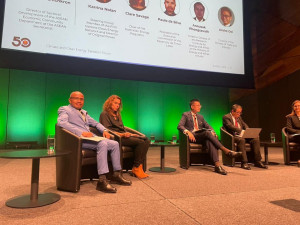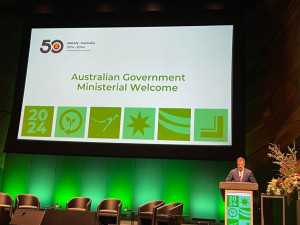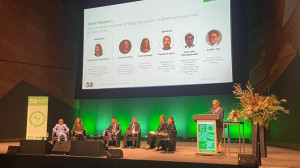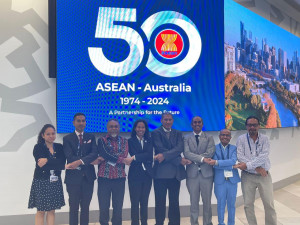EDTL President participates in Seminar on Climate Transition and Clean Energy on the sidelines of the ASEAN-Australia Summit

The CEO of EDTL, EP, Paulo da Silva, took part as a speaker in the International Seminar on Climate Transition and Clean Energy that took place on March 4th, 2024, as part of the Summit commemorating the 50th anniversary of Australia's dialogue partnership with ASEAN, held at the Melbourne Convention and Exhibition Centre in Australia. 
This seminar brought together regional leaders and experts to discuss strategies for ASEAN countries and Australia to face the global challenges of climate change and the transition to sustainable energy, contributing to the worldwide goal of carbon neutrality by 2050.
The President of EDTL, Paulo da Silva, shared Timor-Leste's experience in the energy sector with the seminar participants, highlighting the country's commitments, policies, and actions in its journey from conventional to renewable energy. 
Paulo da Silva presented the current national energy profile, detailing Timor-Leste's public policies on renewable energy and the targets to promote more sustainable practices. He also addressed concrete actions aimed at implementing renewable energy diversification in Timor-Leste and the obstacles and challenges faced by the country in this process. He also explored the possibilities for cooperation between ASEAN countries and Australia to accelerate the transition from non-renewable to renewable energy and strengthen collaborative ties in this important global initiative. 
The EDTL's CEO pointed out that, according to the National Strategic Development Plan (NSDP) 2011-2030, Timor-Leste aims to meet at least 50% of its energy needs through renewable sources. To this end, Timor-Leste is implementing photovoltaic systems with a capacity of 72MW-85MW and planning to develop hydro and wind systems for energy production.
He also said that 99% of the country's villages (sucos) already have access to electricity and that the expectation is to reach 100% by 2024, or early 2025 at the latest.










































